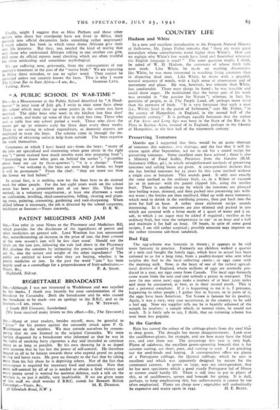Bad Egg
The egg-scheme was fantastic in theory ; it appears to be still more fantastic in practice. Formerly my children walked a quarter of a mile and bought the family eggs, which have in actual fact been rationed to us for a long time, from a poultry-keeper who sent what surplus she had to the local collecting centre ; or eggs came with the morning milk. Now, in the heart of one of the richest agricul- tural districts of England, where millions of eggs are normally pro- duced in a year, my eggs come from Canada. The local eggs formerly came warm from the nest and cost nobody a penny in transport. The new (in one sense new) eggs make a journey of at least 3,000 miles and must be considered, at best, as in their second youth. This is not a personal complaint. If it is happening to me it is, I presume, happening to other people ; I gather that in Sussex, or in parts of it, the eggs have been American. Yet Sussex is famous for its poultry. Again, it was a very, very rare occurrence, in the country, to be sold a bad egg. Now my supplier tells me he is heartily ashamed of the sample he receives: a sample which, in normal times, he would not touch. It is fairly safe to say, I think, that no rationing scheme has ever been less popular.


























 Previous page
Previous page